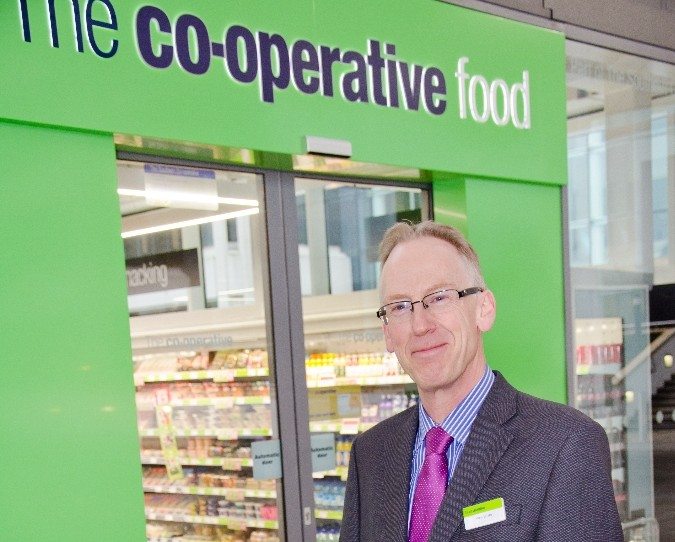The Southern Co-operative hailed a “milestone” year in its annual report for 2016, with its highest ever week’s sales and the opening of its 200th store.
In its results for the year ending January 2017, the society reported an operating profit of £5.6m, up 16.6% on the previous year’s £4.8m.
The retailer runs 190 stores in the south of England and also has a property portfolio, several Starbucks franchises and an online business selling independent living aids. The co-op opened 22 new stores in 2016 and experienced a 3.3% increase in like-for-like sales. Turnover also reached £394m, up 7% on the previous year’s £366m.
The funeral care business also performed well during 2016, with End of Life Services bringing in a total income of £17.4m, with a 32% rise in funeral pre-paid plans.
Owned by its 166,000 members, the Southern Co-op gave members 2% back on all products sold in its stores, with the members’ share of profits totalling £2.8m in 2016. The co-op also organised trips, enabling them to meet local producers and partners and taste products. The society continued to work on expanding its range of local products, having added 27 new producers to the range in 2016.
Chief executive Mark Smith told the News: “I would like to thank and pay tribute to the talented and dedicated team of people that make up Southern Co-op, for what they have helped the society achieve this year, particularly against such challenging external conditions.
“These are the same people that have continued to engage with the communities in which we trade and have supported and raised funds for countless good causes.”
Related: Central England results hold society steady
Throughout 2016, the co-op carried out a roadmap project to ensure good governance and adopted a Board Composition Charter, which outlines the ideal board make-up, and the skills and experience expected of directors. It evaluated its directors’ individual skills, benchmarked them against the board’s needs as a whole and provided training and development programmes where needed.

The society, which employs 4,200 people, also launched new training and development programmes and introduced new roles. Aspire, a 12-month talent programme, helped senior managers develop their leadership skills, while an apprenticeship scheme saw 20 colleagues obtain qualifications with an additional 59 working towards them.
In the society’s annual colleague survey, 84% of respondents said they were proud to tell people they work for the society, which this year plans to introduce listening groups across the business, where colleagues can share their employment experience.
Another area of focus in 2016 was sustainability. Two years ago, Southern launched its sustainability plan, Making a Difference, taking 19 public commitments of which 12 have been achieved and a further six are on plan. In 2016 the co-op’s overall absolute tonnes of CO2e (carbon dioxide equivalent) emissions fell 20% on the previous year and by 25% compared with 2012. The retailer has also reduced energy consumption by 11% to 33.5 million kWh and improved energy efficiency by 49%.
Since the introduction of the carrier bag levy in 2015, the co-op has cut carrier bag usage by 68%. Proceeds from the 5p carrier bag charge went to local communities. Through its community investment programme, Love Your Neighbourhood, Southern Co-op gave £701,514 to local charities and community groups in 2016, the equivalent of 14% of our society’s pre-tax, pre-dividend profits.
Colleagues also raised £262,857 funds for local causes through various activities. In addition, the mutual raised £506,813 over two years to 2016 for it fundraising partner, Whizz-Kidz a charity working to transform the lives of disabled children.
Writing in the report, Mr Smith said the society would continue to invest growing its retail network, despite the uncertainty caused by Brexit. He highlighted some of the challenges faced by the co-op during 2016 such as the short notice introduction of the the National Living Wage and cost increases from higher business rates, the apprenticeship levy and increased employer pension contributions.
“Our response to these new external cost pressures was to look at how we could improve the way we operate our business, whilst continuing to add new stores, enabling us to get the most from spreading the fixed costs of running our business,” he added.